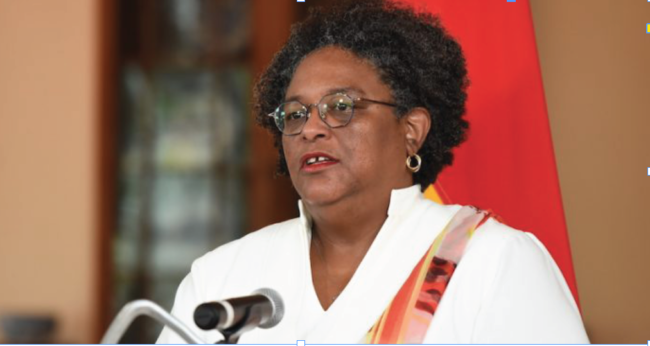Disclaimer: The views and opinions expressed by the author(s) do not represent the official position of Barbados TODAY.
By Ralph Jemmott
Apparently, the Barbadian word for 2023 is going to be ‘resilience’. In her New Year address to the Barbadian people, Prime Minister Mia Amor Mottley called on us to be resilient, both individually and collectively, to pull our country through what most agree will be a year of continuing social and economic difficulties. No amount of partisan political chatter and wishy-washy wishful thinking can avoid the economic challenges we face. The World Bank is predicting single digit economic growth for Barbados and the majority of Latin America in 2023 and 2024.
Indeed, the global economy is expected to slow over the next two years. The causal factors include continuing rising inflation, higher interest rates, declining investment and disruption occasioned by an ongoing Russia-Ukraine conflict, the outcome of which remains very uncertain. These and other factors, according to the World Bank’s Global Economic Prospects Report, “could weigh heavily on commodity prices undermining economic activity in the region’s commodity exporters”.
If these ostensibly adverse circumstances prove true, Barbados and Barbadians will be required to exhibit all the so-called ‘resilience’ we can muster. But apart from being a nice sounding word, what, after all, is this virtue of resilience? Borrowing money to build material resistance to climate change and the ‘greening’ of the economy is one thing. But how does it relate to the character of the Barbadian people and to their capacity to work together, seeing that ‘we are all in this together,’ whatever that implies?
Two days after the Prime Minister spoke on the imperative of our being resilient, the pages of our newspapers showed the representative for St. Thomas Ms. Cynthia Forde looking on in dismay at coconut shells dumped at Dukes in the parish. A few days before, one observed a huge mattress dumped on the side of the road near the Coral Ridge Cemetery in Christ Church. Environmentally speaking, are we honestly that resilient?
When our Prime Minister was invited to give the Nelson Mandela Memorial lecture, a South African speaker described her as ‘a defender of the planet’. Who is defending this 166 square mile island home of Barbados?
Resilience is, above all else, a moral or ethical category. The word itself implies the capacity or will to recover or rebound from an adverse situation or condition. The first obligation is to fully recognise the adversity of the situation, the second is to muster the moral resolve and tenacity to remedy it. Given the moral decline in Barbadian society, one must question the country’s capacity for ethical resilience. Our once prized institutions of socialisation, the home, the Church and particularly the school now lack the efficacy they once showed.
The school remains the one single compulsive agent of socialisation in the sense that all children are, by law, obliged to attend school between the ages of five and 16. That critical motivation has now largely atrophied. A parish priest has openly stated that criminals are recruiting school boys. A report of gambling in a school corridor led to the death of a school prefect and bullying, personal and by social media, is rampant. A newspaper headline on Tuesday January 10 screamed “Student beaten, stripped. The storyline stated that the mother of a twelve-year-old girl is calling on police and officials of the Ministry of Education to offer protection to her daughter who was beaten and stripped naked last December 10 by a group of teenage girls while attending a social event at a secondary school. Beyond the political talk, where is the evidence of our so-called resilience?
Over the past decades, the writ or apparatus of the State in Barbados and indeed, in much of the Caribbean, has proven itself deficient in maintaining an environment of law and order and of individual and collective security.
In her end of the year address, out-going President of Trinidad and Tobago Paula-Mae Weekes noted that her country was descending into a state of savagery. Now we hear that it is the responsibility of all of us to redress the situation. There may be some truth in this, but one gets the impression that Barbadian society is becoming increasingly atomised, with everybody looking out for themselves, even at the expense of others.
However, the truth is that the key responsibility for law, order and social discipline is the preservation of the Government whose remit is to maintain the social safety of its people. The notion that the Government can’t do it alone is something of a cop-out. Government, the state apparatus, has the single greatest responsibility for social order. It has behind it the force and Writ of Law. It is because successive administrations of both colours have failed to construct a serious coherent social narrative that we find ourselves in the situation that we are in today. The big question is, will the Government muster the resolve that constitutes and enforces effective societal resilience or will it prove to be just another buzz-word?
Ralph Jemmott is a respected retired educator.




